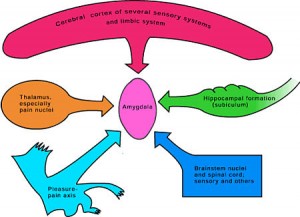We live in a world that glorifies bad behavior. Neural science can trace the electrochemicals (self-manufactured chemicals or internal chemicals) that flow through our system when we behave in ways that are harmful. The effect is a temporary good feeling when we behave poorly.
The external manifestation of this behavior is rationalization.
You hit my sister because she hit you. You feel good about hitting your sister because your mind was able to manufacture a chemical that covered the pain (electrochemical) that is the natural consequence of behaving poorly. After a period of time, the effect of the behaviorally induced drug wears off and you feel guilty.
Some people, rather than go through the remorse of feeling guilty, will do something in order to manufacture the chemical again, so they will either hit another person or relive the story.
The constant reliving of the story is also called venting. It feels good leading up to the venting. Anticipation creates the manufacturing of the electrochemical, so during the venting you are stable and for a short time afterwards, then the cycle starts over.
Ezra Taft Benson said, “You cannot do wrong and feel right. It is impossible.” (New Era, June 1986, p. 5)
Dallin H. Oaks explained how such behavior turns into an addiction.
“You can never get enough of what you don’t need, because what you don’t need will never satisfy you.” (Conference Report, Oct. 1991. p. 104)
Hitting another person, venting my story of victimhood, turning someone into a villain is a lot of what I don’t need. When I am unhappy, I have learned to find the source and replace it.
The source is never the behavior of someone else; it is always my own behavior.
